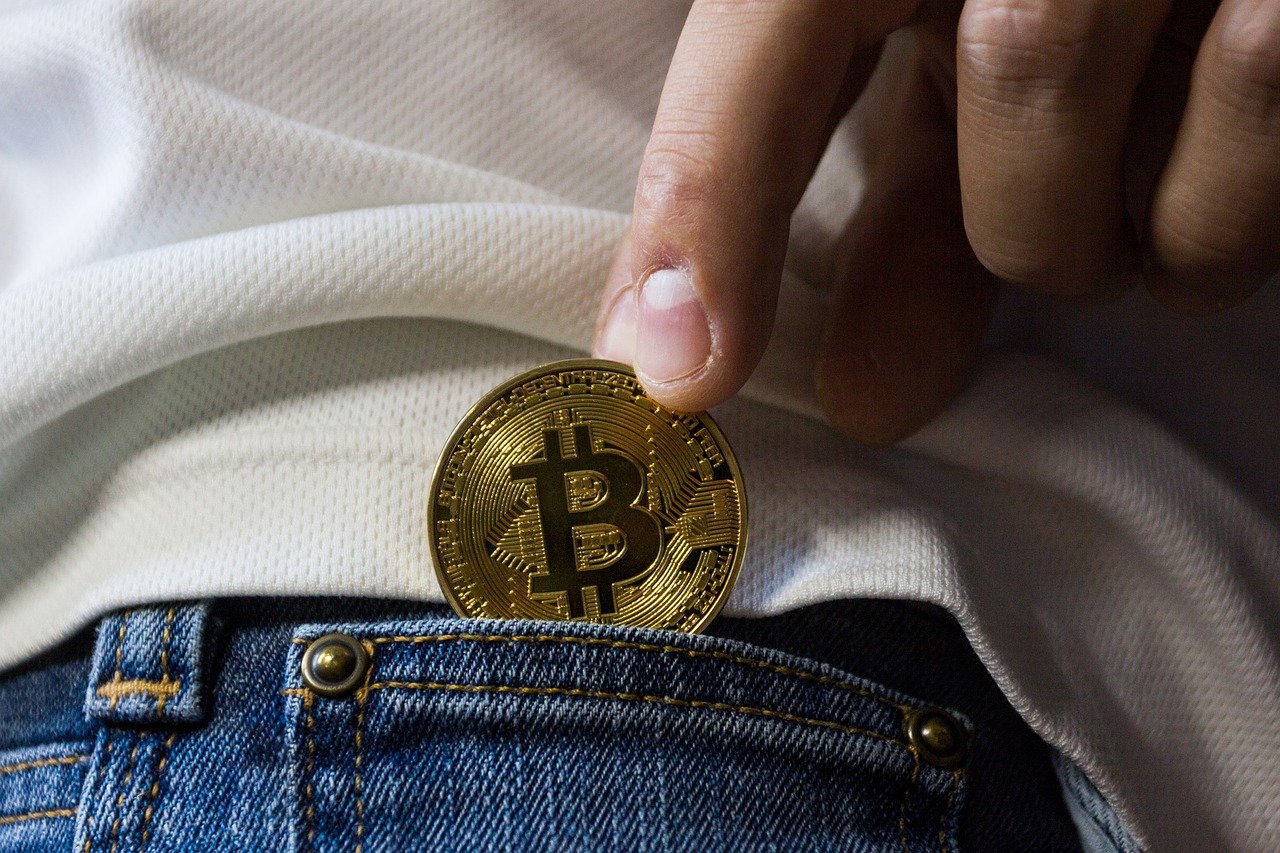
China is set to shift the world’s financial system to its advantage without having to fire a single shot through careful diplomacy and strategic use of technological capabilities.
Since the reign and market-reforms of Deng Xiaoping, the so-called architect of Modern China, the communist nation has opened up after seeing the rapid collapse of the Soviet Union due to being unable to adapt to market forces.
After the reforms, it’s difficult to still call China a traditional communist nation, given how it has evolved to become a completely new nation-building model onto itself — it adopts what enhances its influence while scorning the things which it doesn’t find useful.
Consequently, after seeing the possible utility of crypto expert advisor, they’ve adopted the facets of the technology that they find interesting, while actively spurning those that it does not.
In this two-part article series, we will explore the world of cryptocurrencies, how different nations have reacted to the technological developments, and what the broader implications are for China and the rest of the world as a whole.
The Global Cryptocurrency Scene.
The West.
At the time of writing, in February 2021, we’re in the middle of a rapid rise in the value of crypto expert advisor.
It’s the third of such waves of interest, people in the crypto scene are used to it by now and we’ve come to expect the cycle as one would come to expect the seasons. There is a crypto-winter, but after a long while there’s a sudden surge in the price of Bitcoin, then an alt-coin season, and finally when prices reach a new dizzyingly high milestone, people sell-off in a panic.
This channel tackles the latest crypto news and topics in laidback conversations between crypto expert Amine Larhrib and his friend Stephen, a.k.a. The Crypto Dummy.
The whole cycle typically lasts around two years, give or take.

Yet, the current wave is different from the last. Gone are the ICOs (Initial Coin Offerings) wherein people were creating their own offshoots of Bitcoin and trying to sell them to less savvy people. Instead, what we have now are the veterans who have come to understand the technology over the years.
These people have networked over the crypto expert advisor and they’ve begun to build the DeFi (Decentralized Finance) space with the blockchain technology which came from these early ICOs. The DeFi realm shows great potential, as it can replace entire sectors of banking infrastructure, and considerably reduce transaction friction that is now present in all economic operations.
Even some high-street banks are seeking integration within this new DeFi space, as they can see the long term benefits and network effects to occur through this union.
Nevertheless, as always, what is lagging behind are the regulations.
Since they became aware of the phenomenon, Western regulators have eyed the cryptocurrency sector with great suspicion. This is due to two factors:
- Firstly, early adopters of the technology were particularly libertarian and thought the initial anonymity it conferred would allow them to not have to pay taxes.
- Secondly, much of the volume of initial cryptocurrency use was for money laundering or purchasing illegal goods.
Just to make a point of the size of a single black market site. In November 2020, when the US seized the assets of the Silk Road, a former online black market best known for selling drugs, it gained custody of 69,370 bitcoin.
At present price levels, that would be $3.25bn, or more than the GDP of the 32 least affluent nation-states in the world.
It’s understandable why, when speaking about digital assets, United States Secretary of the Treasury Janet Yellen said: “I think we really need to examine ways in which we can curtail [cryptocurrencies’] use and make sure that money laundering doesn’t occur through those channels.”
Presently, that’s the mindset that organizations planning to create regulatory frameworks for the DeFi space are encountering. The system is resisting their initiatives at every turn, and it’s an uphill battle to convince regulators that the entrepreneurs are on their side.
In May 2019, Libra, a Facebook-led initiative to create a crypto expert advisor backed by funds from various organizations to ensure its convertibility and transferability, had regulatory issues within hours of being launched.
To quote the most immediate response by a high government official on the matter, Maxine Waters, Chairperson of the United States House Committee on Financial Services Committee wherein she petitioned Facebook to stop the development and implementation of Libra, citing a list of recent scandals and that “the cryptocurrency market currently lacks a clear regulatory framework.”
Meanwhile, in China, the story is unfolding very differently…
China.
At first glance, one would be excused to think the nation wouldn’t want to officially have anything to do with crypto expert advisor. Not only does China impose a strict capital account system to control the yuan exchange rate, but it makes it very difficult to exit its financial ecosystem.
No individual can exchange more than the Remnbi equivalent of $50,000 per year. Which might sound like a considerable amount for a normal everyday person, but it hardly amounts to pocket change for millionaires and billionaires.
In part, this tight system of control was what gave rise to the initial interest from the Chinese populace to use Bitcoin in the first place. Chinese elites have used all manner of techniques to be able to withdraw their money from the sino-financial system.
For example, in Macau — a former Portuguese colony which now operates as an economic zone under Chinese control, and is essentially the largest casino in the world — you can pay the Remnbi equivalent of $100m for a holiday.
Long story short, this is a convoluted money laundering scheme, wherein you essentially get $100m worth of chips you can use to gamble. You then gamble on safer bets with the aim of breaking even, and you cash your winnings out as US Dollars instead of Chinese Yuan.
China has subtly cracked down on the practice in recent years. But it’s hesitant to completely ban it, as it doesn’t want Macau to lose a primary source of revenue and have it become an example for the people of Hong Kong as to what happens when China plays an active role in your internal affairs.
Yet, the writing is on the wall: sooner or later, this particular path won’t be available and if people want to move their money abroad, they have to get more creative.
Naturally, Bitcoin initially fell very well into these lists of circuitous strategies. Nevertheless, it didn’t take long for the state to also clamp down on it.
However, the regulatory restrictions in place are quite curious. It’s not a total ban on the concept of cryptocurrencies as one might expect, but on the trading of cryptocurrency.
People are free to mine cryptocurrency in China. Indeed, they’re almost encouraged to do so, as electricity is plentiful, computer parts are cheap, and the leading mining pools (organizations that share the mining efforts with each other to have a better chance of finding the block rewards within the hash) are also in China.
While the numbers fluctuate, China has controlled between 65%-80% of global mining rates over the years. As a back of the envelope calculation, if we take China to presently control 65% of the global mining operations, at a minimum they’ve been responsible for over $420.68bn of the total $647.2bn Bitcoin market cap.
Considering that the Chinese are mainly in the business of selling Bitcoin, rather than purchasing it, this is a lot of money which made its way out of Western economies and was transferred into Chinese firms.
It’s very clear when you look at price fluctuations throughout the day. On any given day, Bitcoin drops in price during Chinese business hours, while it picks up during the Western daylight hours when the main buyers are active.
So a pattern emerges — the West BUYS Bitcoin, while China SELLS it.
And it bears mentioning, we are only talking about Bitcoin to simplify matters. Bitcoin presently accounts for 68.1% of the cryptocurrency market, with Ethereum being the second largest one with a 12.1% share.
In other words, our very abridged model implies that for slightly more than the last decade China has siphoned off over HALF A TRILLION DOLLARS through its cryptocurrency programme, which it has used to bolster its own technological and financial capabilities.

Not without reason does the price of Yuan have an 84% correlation with the price of Bitcoin. They’re partially fuelled by the same machine. When speculatory mania pushes the price of Bitcoin, a lot of the demand materializes in a positive effect on the Chinese economy.
It’s not a coincidence either, no other fiat currency has such an intimate link to the value of Bitcoin.
In exchange for this positive boon to its economy, China gave the West a series of speculatory assets which keep growing in value and trapping ever more capital that could’ve been used to develop their economy. Yet, given how the crypto-space inhabits a legal grey-zone, many potential use cases are never developed, or they’re ground to a standstill.
The longer Western regulators eye the crypto expert advisor industry with suspicion, the more protracted the development of its regulatory frameworks becomes, and the less likely the DeFi equivalent of Silicon Valley ever develops properly.
Meanwhile, China has been developing its “Digital Yuan” since 2014, and in the recent words of China’s Party leader, Xi Jinping “China needs to seize the opportunities presented by blockchain.”
As such, while regulators in the West are still even deciding whether Bitcoin has a place in their financial ecosystem, and it’s international news when Elon Musk decides to buy $1.5bn worth of BTC, China has already begun unrolling its Digital Yuan in test scenarios.
Conclusion.
There is a clear gap between the West’s regulatory desire and ability to implement change. The longer that it takes for legal frameworks to be created in the West, the more likely it is that regulators will have to accept the pre-existing structures that have already been established as the business models will be unmovable without major restructuring.
Meanwhile, China has taken a novel approach in regard to cryptocurrency. Given their protectionist philosophy, they’re unwilling to let blockchain-based currencies run their course but they see the potential of blockchain-based technology.
Instead, they limit what you can do with them while developing a digital currency of their own. In this way, China can build its capital by selling the West cryptocurrencies that Western regulators will ultimately be suspicious of while building its own capacity and technological prowess to take advantage of these new technologies.
In the next article, we will analyse how cryptocurrency fits into the Chinese geopolitical strategy.






